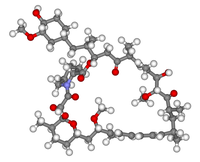
Genetic variants in the CNTNAP2 gene are associated with gender differences among dyslexic children in China
Sign Up to like & getrecommendations! Published in 2018 at "EBioMedicine"
DOI: 10.1016/j.ebiom.2018.07.007
Abstract: Background It is well known that males have a higher prevalence of developmental dyslexia (DD) than females. Although the mechanism underlying this gender difference remains unknown, the contactin-associated protein-like 2 (CNTNAP2) gene, which shows sex-specific… read more here.
Keywords: gender differences; genetic variants; cntnap2 gene; variants cntnap2 ... See more keywords

Shed CNTNAP2 ectodomain is detectable in CSF and regulates Ca2+ homeostasis and network synchrony via PMCA2/ATP2B2
Sign Up to like & getrecommendations! Published in 2022 at "Neuron"
DOI: 10.1016/j.neuron.2021.11.025
Abstract: Although many neuronal membrane proteins undergo proteolytic cleavage, little is known about the biological significance of neuronal ectodomain shedding (ES). Here, we show that the neuronal sheddome is detectable in human cerebrospinal fluid (hCSF) and… read more here.
Keywords: ectodomain; ca2 homeostasis; network synchrony; cntnap2 ecto ... See more keywords

Suppression of Akt-mTOR pathway rescued the social behavior in Cntnap2-deficient mice
Sign Up to like & getrecommendations! Published in 2019 at "Scientific Reports"
DOI: 10.1038/s41598-019-39434-5
Abstract: Autism spectrum disorders (ASD) form a heterogeneous, neurodevelopmental syndrome characterized by deficits in social interactions and repetitive behavior/restricted interests. Dysregulation of mTOR signaling has been implicated in the pathogenesis of certain types of ASD, and… read more here.
Keywords: mtor signaling; mtor; mice; cntnap2 ... See more keywords

Genetic variants in autism-related CNTNAP2 impair axonal growth of cortical neurons
Sign Up to like & getrecommendations! Published in 2018 at "Human Molecular Genetics"
DOI: 10.1093/hmg/ddy102
Abstract: The CNTNAP2 gene, coding for the cell adhesion glycoprotein Caspr2, is thought to be one of the major susceptibility genes for autism spectrum disorder (ASD). A large number of rare heterozygous missense CNTNAP2 variants have… read more here.
Keywords: axon growth; autism; genetic variants; axonal growth ... See more keywords

Behavioral regulation by perineuronal nets in the prefrontal cortex of the CNTNAP2 mouse model of autism spectrum disorder
Sign Up to like & getrecommendations! Published in 2023 at "Frontiers in Behavioral Neuroscience"
DOI: 10.3389/fnbeh.2023.1114789
Abstract: Autism spectrum disorders (ASDs) arise from altered development of the central nervous system, and manifest behaviorally as social interaction deficits and restricted and repetitive behaviors. Alterations to parvalbumin (PV) expressing interneurons have been implicated in… read more here.
Keywords: autism; autism spectrum; perineuronal nets; prefrontal cortex ... See more keywords

Investigating behavioral phenotypes related to autism spectrum disorder in a gene-environment interaction model of Cntnap2 deficiency and Poly I:C maternal immune activation
Sign Up to like & getrecommendations! Published in 2023 at "Frontiers in Neuroscience"
DOI: 10.3389/fnins.2023.1160243
Abstract: Introduction Autism Spectrum Disorder (ASD) has been associated with a wide variety of genetic and environmental risk factors in both human and preclinical studies. Together, findings support a gene-environment interaction hypothesis whereby different risk factors… read more here.
Keywords: environment interaction; cntnap2 deficiency; gene; gene environment ... See more keywords

Dysregulation of Parvalbumin Expression in the Cntnap2−/− Mouse Model of Autism Spectrum Disorder
Sign Up to like & getrecommendations! Published in 2018 at "Frontiers in Molecular Neuroscience"
DOI: 10.3389/fnmol.2018.00262
Abstract: Due to the complex and heterogeneous etiology of autism spectrum disorder (ASD), identification of convergent pathways and/or common molecular endpoints in the pathophysiological processes of ASD development are highly needed in order to facilitate treatment… read more here.
Keywords: autism spectrum; spectrum disorder; expression; asd ... See more keywords